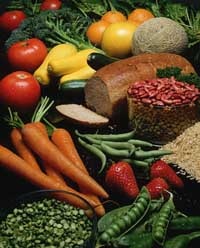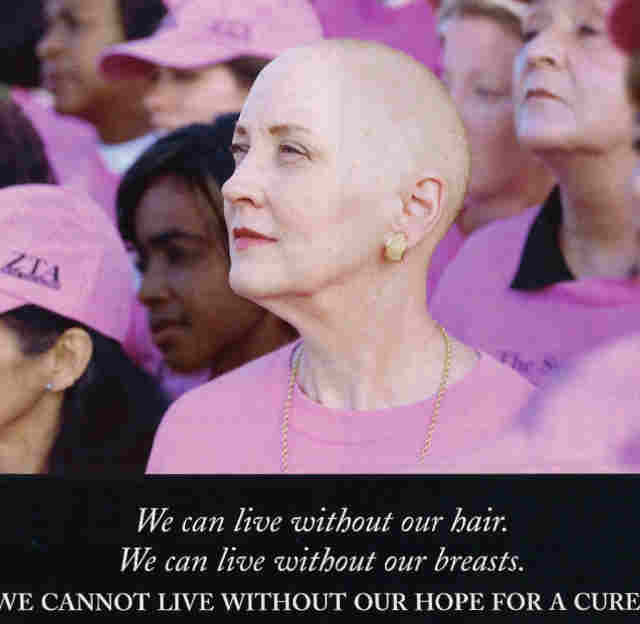 CONSULT YOUR PHYSICIAN,,,
CONSULT YOUR PHYSICIAN,,,
Before you began any exercise program,
medication, or diet
'talk to your physician!' |
|
'
SUCCESSFUL WEIGHT LOSS
REQUIRES A LIFESTYLE CHANGE
We've all seen or experienced the 'yo yo' effect of dieting at one time or another. What we mean by the yo yo affect is effectively dieting with significant weight loss only to regain some or all of it back within a year's time. In frustration, we begin this process 'all over again' determined, though only in words, not to let this happen again. However, usually 70-80% of the time, the process will repeat itself. The reason why this is, is though we lose the weigh desired, we make very little changes to our lifestyle to keep the weight off permanently! Some of us have learned the art of occasionally 'cheating adequately' to keep from giving up our food cravings and loves. But even though we occasionally do this the bottom line is a definite on-going change in our lifestyle. We have to institute different failsafe mechanisms to prevent us from fallbacks and binges in our moments of weakness. We need to put a diligent individual we can trust, in place we can be accountable to that will challenge as well as inspire us to 'stay the course.' More than anything, it will take direct discipline on our part to be firm with our emotions and take alternative measures. Stay away from certain, people, places and things that may trigger a crisis. Put healthy foods and snacks at your disposal or close proximity. And utilize your spare time doing other things, hobbies, exercise, reading, mediation; things that fill up the space you used before doing unhealthy habits. Seriously changing your lifestyle will ensure permanent weight loss success and stop the 'yo yo' effect.
|
|
EATING HEALTHY
INCLUDING THE FOOD GROUPS IN YOUR DIET
It is important that we eat a balanced diet with foods from each of the five major food groups. Choosing a variety of foods within and across food is also important. In each food group different foods provide more nutrients than others. If you eat a variety, you will probably get all the nutrients provided by the foods in that group. Most of the variety in your foods should come from plant foods (fruits, vegetables & grains). Ways to include the five food groups in your diet are suggested here:
FRUIT - easy to carry as a snack or include it as part of most meals (i.e. a banana w/ your breakfast cereal, an apple for morning snack and an orange for afternoon snack.)
VEGGIES & LEGUMES - raw or cooked vegetables can be used as a snack or part of lunch or dinner. Salad vegetables can be used as sandwich fillings. Vegetable soup is a healthy lunch. Stir-fries, veggie patties, and vegetable curries make nutritious evening meals. For a snack on the run try carrot & celery sticks.
MEATS (lean), fish poultry, eggs & nuts - these can all provide protein. It's easy to include a mixture of protein into snacks & meals. Tofu is used for vegetarian meals.
BREADS, cereals, rice, pasta & noodles - grains and cereals come from a wide variety of sources breakfast cereals (i.e. oats, muesli, wholegrain flakes) whole meal breads, biscuits, rice, barley, corn & pastas.
MILK, yogurt, & cheeses - eat a diverse range of diary foods including milk, cottage cheese, yogurt adn other types of cheeses. If you have problems with lactose intolerance, there are many over-the-counter preparations that will aid in digestion so you can get the RDA of dairy products needed for your health.
LOWERING YOUR RISKS
FOR BREAST CANCER
In the United States, one out of seven women will develop breast cancer in her lifetime. Thankfully, significant progress in mammography technology is helping physicians to diagnose the disease earlier and new treatment options mean more comfortable treatments and improved outcomes. Today, there are more than two million breast cancer survivors in the United States. Special population at risk for breast cancer include minority and older women. African American women have a higher breast cancer death rate than women of any other racial or ethnic population. Some risk factors for breast cancer are beyond your control. But a number of significant risk factors CAN be 'undone' to reduce your risk of breast cancer:
* You should try to stop smoking for good!
* Try to exercise on a regular basis, aiming for three to four hours a week
* Anything you can do to relieve your stress and to enhance your comfort, satisfaction, and joy will have a major effect on your quality of life.
* So-called 'mindful measures' such as meditation, yoga, visualization exercises and prayer, are valuable additions to your daily or weekly routine.
Making some or all of these lifestyle changes will improve your overall health and possibly also reduce your risk of breast cancer .
You can minimize or elimate sources of extra estrogen from your diet or environment by following these steps:
* Stop drinking alcohol or limit consumption to no more than two alcoholic drinks per week. Cutting down on alcohol increases your liver's ability to regulate blood estrogen levels.
* Restrict red meat and other sources of animal fat, this includes dairy fat in cheese, milk and ice cream, as they may contain stored hormones.
* Try to stick to a balanced diet with lots of vegetables.
* Shed any extra pounds and try hard to keep them off.
For more information, visit 'breastcancer.org'
|
 THE FIVE MAJOR FOOD GROUPS
THE FIVE MAJOR FOOD GROUPS
'Including them all in your diet daily
promotes good health!' |


